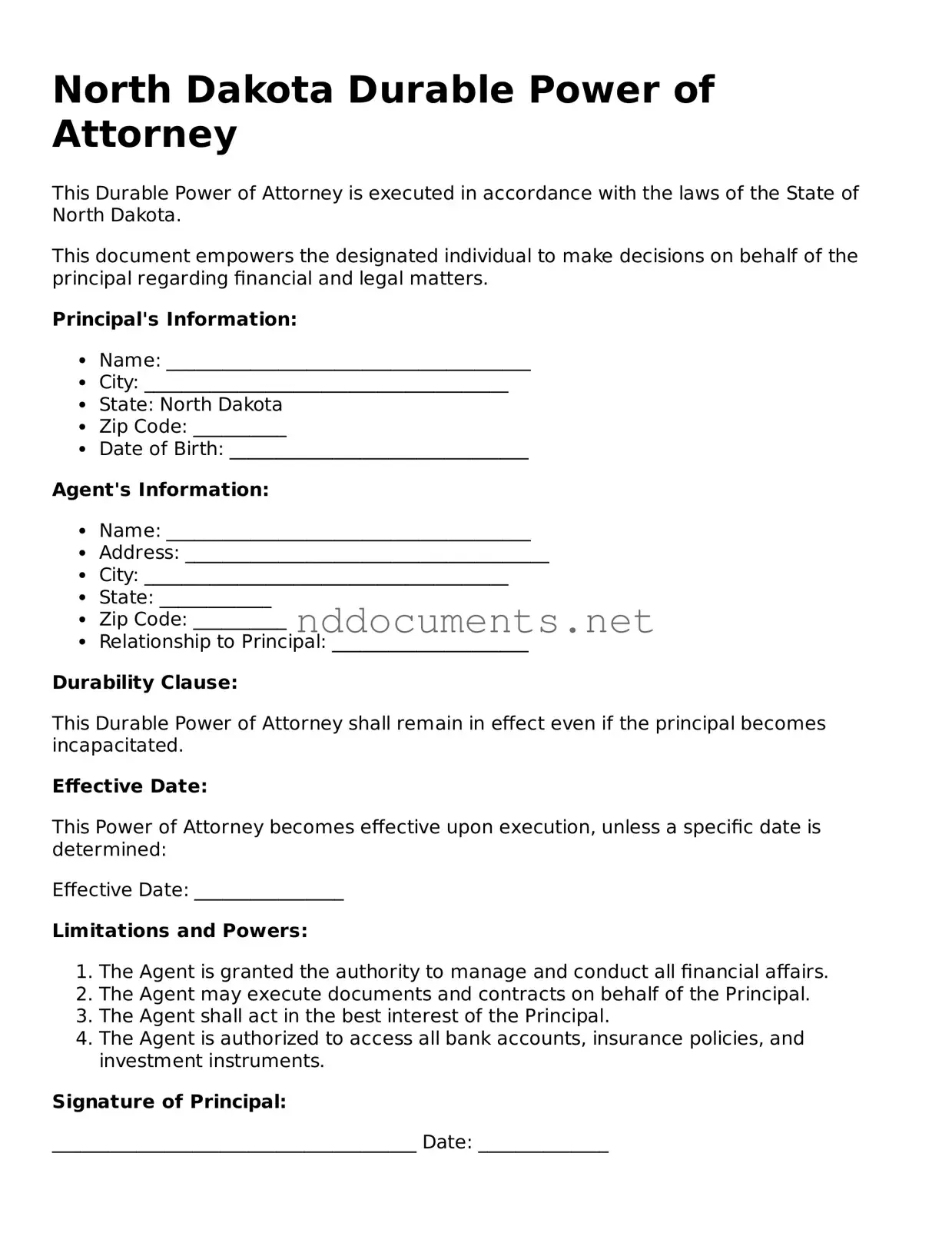Fillable Durable Power of Attorney Document for North Dakota
A North Dakota Durable Power of Attorney form is a legal document that allows an individual to designate someone else to make decisions on their behalf, even if they become incapacitated. This arrangement ensures that your financial and personal matters are handled according to your wishes when you are unable to do so. Understanding this form is essential for anyone looking to plan for the future and protect their interests.
Make Your Document Online

Fillable Durable Power of Attorney Document for North Dakota
Make Your Document Online

Make Your Document Online
or
➤ Durable Power of Attorney
Don’t walk away from an unfinished form
Finish Durable Power of Attorney online quickly from start to download.